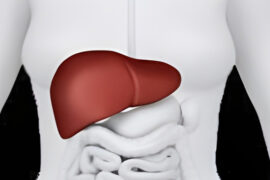A recent study published in ERJ Open Research suggests a link between low levels of vitamin K and poor lung function, as well as an increased likelihood of experiencing respiratory conditions such as asthma, chronic obstructive pulmonary disease (COPD), and wheezing. Vitamin K, commonly found in leafy green vegetables, vegetable oils, and cereal grains, primarily plays a role in blood clotting and wound healing, but its impact on lung health has remained largely unexplored.
The Danish research team, comprising members from Copenhagen University Hospital and the University of Copenhagen, conducted the study involving 4,092 participants aged between 24 and 77 residing in Copenhagen. The participants underwent lung function testing (spirometry), provided blood samples, and responded to health and lifestyle questionnaires. The blood samples were assessed for a marker indicative of low vitamin K levels, known as dp-ucMGP.
The study revealed a significant correlation between individuals with markers indicating low vitamin K levels and decreased lung function, as measured by both forced expiratory volume (FEV1) and forced vital capacity (FVC). Additionally, participants with lower vitamin K levels were more likely to report having asthma, COPD, or wheezing.
Researcher, Dr Torkil Jespersen stated: “We already know that vitamin K has an important role in the blood and research is beginning to show that it’s also important in heart and bone health, but there’s been very little research looking at vitamin K and the lungs. To our knowledge, this is the first study on vitamin K and lung function in a large general population. Our results suggest that vitamin K could play a part in keeping our lungs healthy.
“On their own, our findings do not alter current recommendations for vitamin K intake, but they do suggest that we need more research on whether some people, such as those with lung disease, could benefit from vitamin K supplementation.”
The researchers note that these findings do not currently alter existing recommendations for vitamin K intake, but they do underscore the potential significance of vitamin K in lung health. As a result, the study supports the need for further investigation, including potential benefits of vitamin K supplementation for specific individuals.
The research team is already engaged in a comprehensive clinical trial known as the InterVitaminK trial, which examines the effects of vitamin K supplementation compared to a placebo in relation to heart and bone health within the general population. Following the recent findings, the researchers intend to expand their trial to encompass an analysis of lung function as well.
Dr. Apostolos Bossios: Secretary of European Respiratory Society’s Assembly on Airway Diseases, Asthma, COPD, and Chronic Cough, Uninvolved in Recent Research. He said: “This study suggests that people with low levels of vitamin K in their blood may have poorer lung function. Further research will help us understand more about this link and see whether increasing vitamin K can improve lung function or not.”
“In the meantime, we can all try to eat a healthy, balanced diet to support our overall health, and we can protect our lungs by not smoking, taking part in exercise and doing all we can to cut air pollution.”
Disclaimer:
The information contained in this article is for educational and informational purposes only and is not intended as a health advice. We would ask you to consult a qualified professional or medical expert to gain additional knowledge before you choose to consume any product or perform any exercise.








